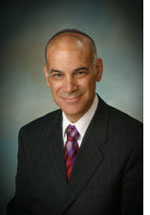
By Rabbi Leonard Rosenthal
SAN DIEGO — Every day since we entered the Hebrew month of Elul we have sounded the Shofar during morning minyan. The Shofar reminds us of the upcoming Holy Days, and that we should begin to spend more time directing our hearts and minds toward heaven.
One of the central themes of these days is teshuva. Teshuva, usually translated as “repentance,” is what Jews call the process of personal examination and reflection which leads to our seeking forgiveness from those we have wronged, and reorienting our lives to do good. The word teshuva is based on the root word shuv, which means “to return.” Teshuva involves returning to our families, to our communities, to being the best we can possibly be, and to God.
God does not desire human suffering, nor that we distance ourselves from heaven, but rather that when we err we admit our failings and return to the Holy One. That is exactly the way we interpret the well-known verse in this morning’s parasha:
“Therefore, choose life so that you and your offspring may thrive.”
This is also the message that Moshe conveys to the Israelites in this week’s parasha when he says, “When all these things befall you – the blessing and the curse that I have set before you – and you take them to heart amidst the various nations to which the Lord your God has banished you, and you return to the Lord your God, and you and your children heed His command with all your heart and soul, just as I enjoin upon you this day, then the Lord your God will restore your fortunes and take you back in love.” (Deut. 30:1-3)
Rabbi Yisrael, the Maggid of Koznitch, offered a suggestion for the process by which human beings should do teshuva, to work to change their lives.
Rabbi Yisrael told the following parable:
There once was a soldier who fled the battlefield after being wounded by his enemy. He could have kept running, but decided to sit down under a tree and tend to his wounds instead. While he was bandaging his wounds his enemy came upon him and killed him.The soldier would have been better off if he had continued to flee!
So it is with us, said Rabbi Yisrael. It is very difficult for human beings to change, and exorcize their personal flaws and defects. When they fail to do so, they become frustrated, give up, and decide to make peace with their personal failings.
This type of personal change is very difficult, ambitious, and takes time. Therefore, before we worry about making these deep and difficult changes, the first thing we need to do is learn to flee from evil! (Iturei Torah, Vol. 6, p. 183-184)
Which bring us harm, that we will be able to concentrate sufficient energy on correcting those internal flaws which attract us to evil to begin with. We should keep ourselves far from those situations, influences, and people we know will get us into trouble. We should avoid those situations which bring us grief and lead us astray.
It is only after we develop the self-discipline to keep away from those things which bring us harm, that we will be able to concentrate sufficient energy on correcting those internal flaws which attract us to evil.
*
Rabbi Rosenthal is spiritual leader of Tifereth Israel Synagogue. He may be contacted at leonard.rosenthal@sdjewishworld.com